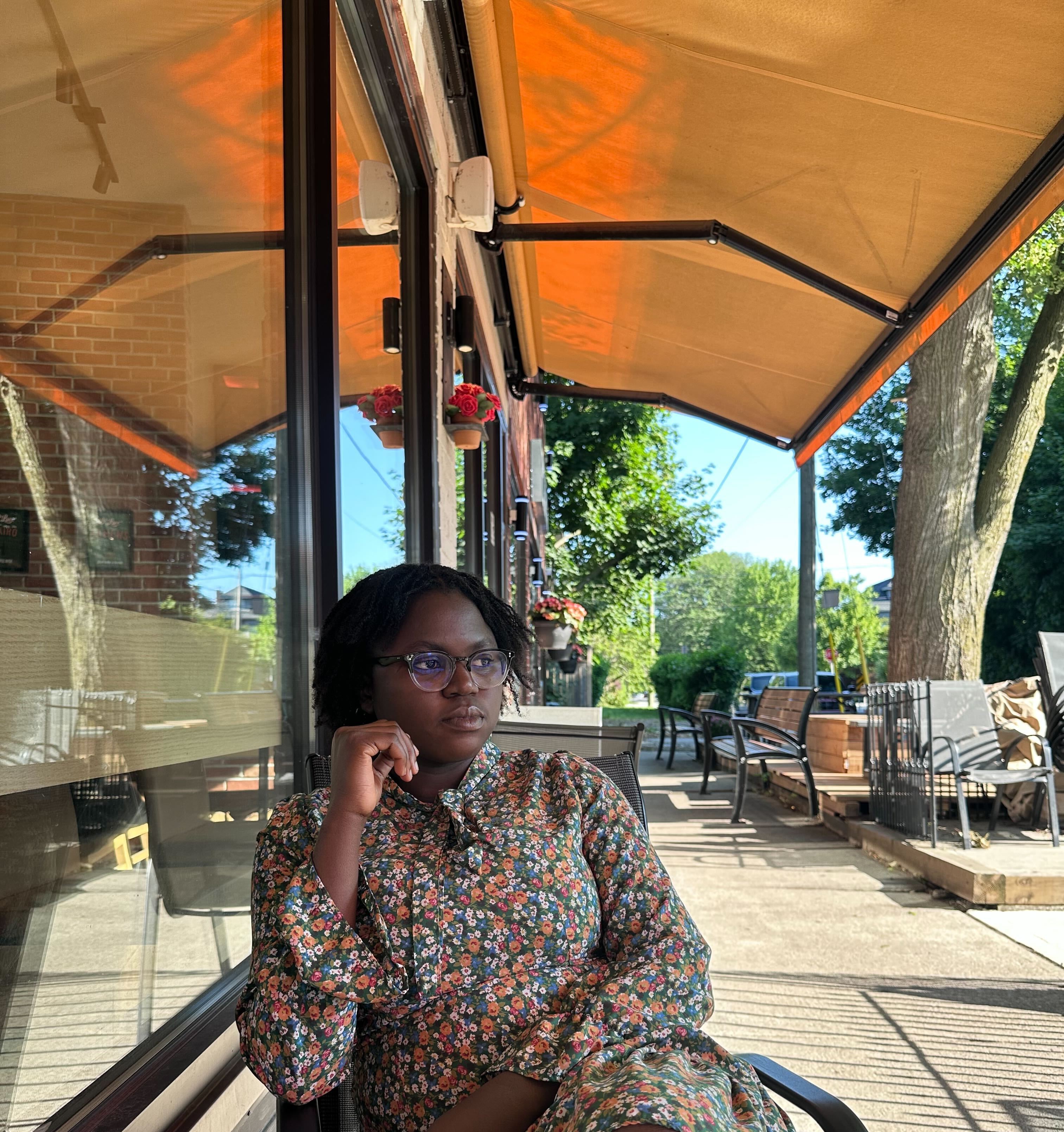Faith Akinyemi (MSc Applied Computer Science and Society) on ComSciCon CAN
Fri. Aug. 1, 2025
Faith Akinyemi, an MSc student in the Applied Computer Science and Society program, recently visited McMaster University, in Hamilton Ontario, where she took part in ComSciCon CAN: a national science communication workshop for graduate students.
The opportunity was perfect for Faith. Since joining The University of Winnipeg, she’s not only been working on her degree, but honing her science communication skills. She won Second Place and People’s Choice in UWinnipeg’s 2025 Three-Minute Thesis Competition, and was recently selected as a finalist for Falling Walls Lab Manitoba.
We checked in with Faith to ask about her trip to ComSciCon CAN.
To start, can you tell us a bit about your research?
My research sits at the intersection of digital agriculture and machine learning. Specifically, I’m working on developing deep learning models that use RGB images of crops taken throughout the growing season to predict final yield. This approach aims to provide early, affordable, and accessible insights to support better decision making for farmers, particularly those in resource-limited settings.
![]() Congratulations on being selected to participate in ComSciCon CAN! What was your role at the conference, and what made you decide to apply?
Congratulations on being selected to participate in ComSciCon CAN! What was your role at the conference, and what made you decide to apply?
Thank you! I participated as a science communicator. I applied because I saw ComSciConCAN as a fantastic opportunity to share my work with a broader community of science researchers while learning from others who are addressing real-world challenges. What drew me most was the interdisciplinary nature of the conference and the diverse approaches to science communication that were represented.
What were some of the connections between your research and other events at the conference? Did you have a chance to connect with or socialize with researchers from other institutions?
Yes, definitely. Several presentations and panels focused on communicating science with empathy and in accessible ways that include a wide range of audiences. These themes deeply resonated with my own research and public engagement goals. I also had the chance to connect with graduate students from institutions across Canada. The poster sessions and informal meetups provided great spaces to exchange ideas, ask questions, and even brainstorm potential collaborations.
 What was the highlight of the conference for you and what are you going to take away from your experience there?
What was the highlight of the conference for you and what are you going to take away from your experience there?
One of the biggest highlights for me was the emphasis on Equity, Diversity, Inclusion (EDI) in science communication; especially since I’ve recently taken on EDI-related responsibilities at my university. I also found the panel on empathy in science communication particularly powerful. Another standout moment was learning about Indigenous ways of knowing and communicating science. It’s an area I’ve long been curious about, and I left feeling inspired and eager to learn more.
Based on your experience, do you have any advice for students about to attend their first conference?
Absolutely. I’d say: prepare to be both a learner and a contributor. Don’t be afraid to ask questions, even if they seem basic. Practice a concise version of your research pitch, and be open to feedback. Also, remember that the relationships you build often outlast the conference itself, so introduce yourself, follow up, and stay connected!
Thank you, Faith! And best of luck at Falling Walls!
